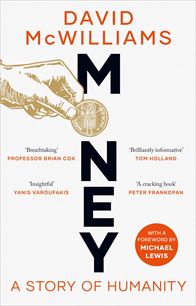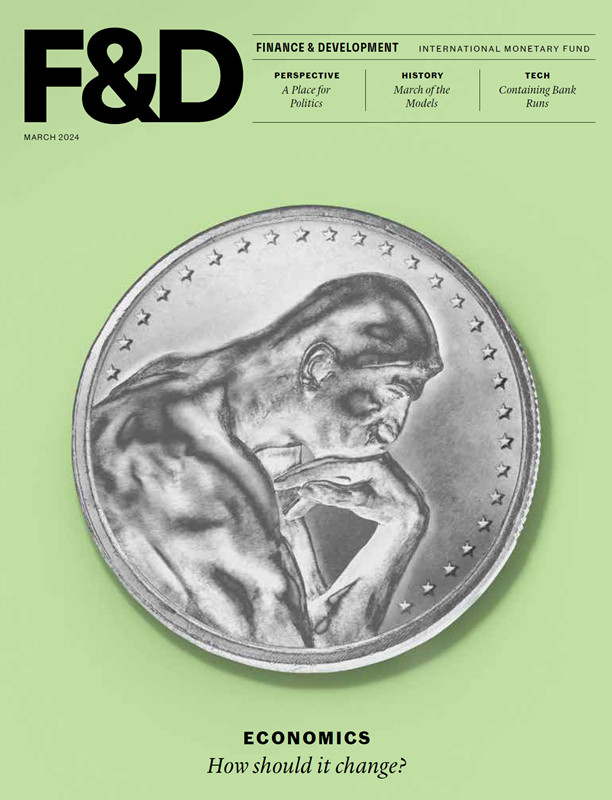Money: A Story of Humanity
David McWilliams
Simon & Schuster
London, 2024,
416 pp., £25
Proficiency with the “ingenious technology” of money accompanied innovations like writing, math, law, democracy, and philosophy. But does money enable such breakthroughs, or did they guide money’s evolution? This chicken-or-egg question animates David McWilliams’s surprisingly memorable joyride through 5,000 years from early coins to crypto.
Money: A Story of Humanity opens by noting that writing came about only because of money—the oldest name to have survived in written form is, naturally, a debtor. Throughout, McWilliams is an enthusiastic narrator of “one of the most seductive and enduring ideas,” a skillful, conversational storyteller unpacking money’s joys and horrors.
“Our entire world revolves around this strange, invented notion,” writes McWilliams, who puts human history into the sweeping context of “one foundational technology, often overlooked, that underpinned and animated human flourishing.”
People predominate. McWilliams chronicles the rise of money through Nero, Jesus, Johannes Gutenberg, Charles Talleyrand, Alexander Hamilton, and Charles Darwin, whose theory of life leapt from the pages of an economics book by Thomas Malthus. Some are brilliant characters, others scoundrels. Many use money to divide, or worse. Empires use money as warfare. European financial innovations unleash colonialism.
McWilliams makes his sixth book a lively tale. He may be uniquely qualified to do so. He was a monetary economist at the Central Bank of Ireland and forecaster for commercial banks before flourishing as an author, journalist, documentarian, and host of what must be the only economics and comedy festival, Kilkenomics, in Kilkenny, Ireland. He kicked around some of the yarns later used in the book on his eponymous podcast. The self-described chatty writer has said it helps him frame concepts to better resonate for all.
He calls the book “a romp with an economist,” but one disappointed in “his own tribe’s ability to tell the story of money.” He faults the profession for taking the fun out of money, and not always understanding it—plumbers aware of how pipes work but not “why water is essential for life.” McWilliams makes money exciting and shows how it changes us and fuels our deepest urges, good and evil.
McWilliams draws from and builds on authors with like titles, including Money by Eric Lonergan and Felix Martin’s Money: The Unauthorised Biography. He credits a shelf of histories, including The Price of Time: The Real Story of Interest by Edward Chancellor.
Some may wonder why a story of universal human experience so centers on Europe, touching other cradles of money, like China, only in passing. The Dublin-based author cites a need for selective focus on linking innovation in money to human progress. He acknowledges that others elsewhere tell equally valid stories. His chapter on transitioning into the 20th century is even more local, profiling James Joyce as an artist-entrepreneur opening Dublin’s first cinema in 1909. But even this digression somehow weaves the Suez Canal, Karl Marx, and the role of thriving, tolerant, open cities like Trieste into an improbable lesson on Europe’s economic gains—soon undone by war.
Money delivers the romp, establishing how an abstraction binds us and defines us.
Opinions expressed in articles and other materials are those of the authors; they do not necessarily reflect IMF policy.










